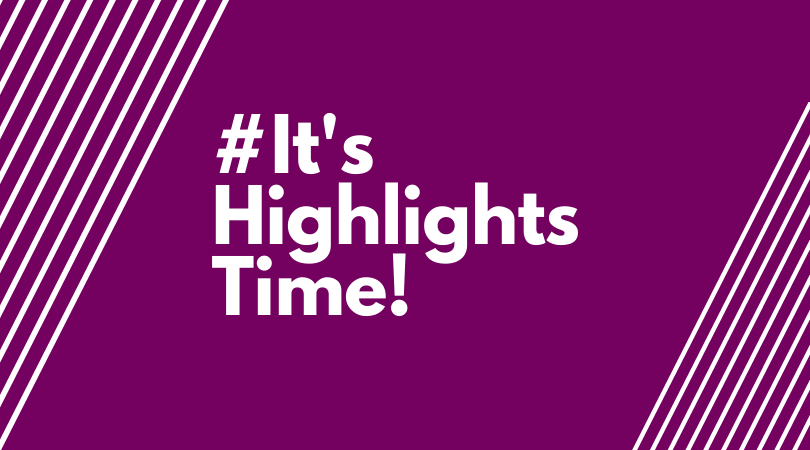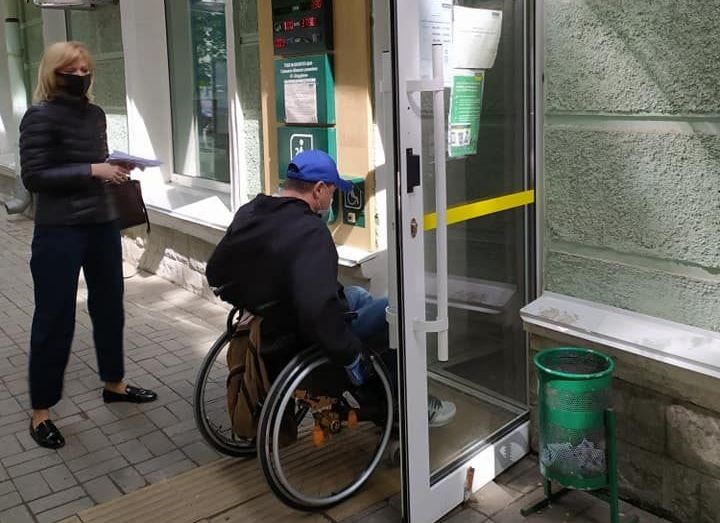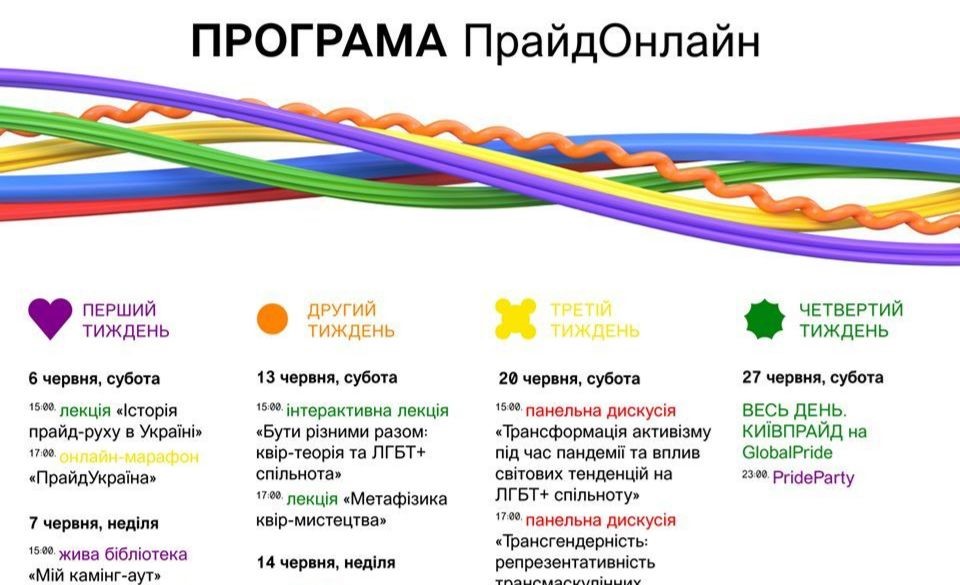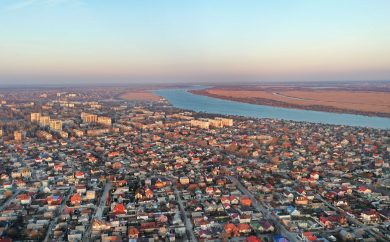June is internationally recognized as LGBTQI Pride Month. The holiday’s origin dates back to 1969 protests in Greenwich Village (NYC), coordinated by a bisexual activist named Brenda Howard, now renowned for coining the term “pride.” Remarkably, some 50 years later, the holiday is celebrated in Ukraine with “KyivPride,” gathering LGBTQI allies, concerned citizens, civic activists, and representatives from Ukraine and countless other countries to voice their support for an inclusive Ukraine.
The holiday reminds us that many voices – including those of persons with disabilities, survivors of abuse, migrants, and religious and ethnic minorities, among others – are often silent and that civil society is central to broadening their civic participation and representation. This week’s issue of Highlights focuses in on these issues of inclusion, with news of an online KyivPride program, efforts to improve the accessibility in the regions, a virtual tour of a museum of acceptance, and an academy for female leaders. Read on and celebrate “pride” this month with USAID/ENGAGE!
****
Pact. Inc. Seeks Candidates to Fill the Position of Intern for USAID/ENGAGE. If you meet the necessary requirements, have a will to join our team of professionals, and contribute daily to the development of a strong civil society in Ukraine, do not hesitate to apply. Read more.
****
Violation, discrimination, bullying, and many others. These words all too often describe the experience faced by thousands of Ukrainians, including those of persons with disabilities, LGBTQIs, survivors of abuse, migrants, religious or ethnic minorities. But in about three years, we now observe a situation wherein individuals who identify as LGBTQI are now perceived to be less discriminated against. This may be because this group became more visible. The opposite situation is true for women – as of this year result the number of those who believe that women belong to a discriminated group has doubled from 8% in September 2017 to 16% in January this year). Almost two thirds of Ukrainians say that they do not belong to a group of people who experience discrimination, yet among those groups who feel discrimination the percentage is significantly higher for respondents aged 65 years and older. Almost one half of respondents would be ready to support discriminated groups of people to which they do not belong in order to prevent that discrimination.
****
Partner News
CSO “Bureau of Legal Communications” Inspects Accessibility of Sumy
USAID/ENGAGE’s partner in Sumy, the CSO “Bureau of Legal Communications,” has started a large-scale inspection of the accessibility of the city. Activists are assessing the accessibility of shops, pharmacies and delivery service offices for persons with disabilities in Sumy and publishing video-reports demonstrating whether a person on a wheelchair can easily buy essentials, especially during the quarantine. The conclusions of the monitoring will be used to form a rating of the accessibility in Sumy following the “Toster” methodology developed by the CSO “Dostupno UA.”
****
KyivPride Announces Pride Online Program
During the month, starting from June 6, every Saturday and Sunday, KyivPride will host a series of online events about LGBTQI issues and the pride movement in Ukraine and across the world. The events will take place on its social network platforms, documenting the history of the pride movement, continuing with the topic of coming out, and ending with queer parties and rights protection during the quarantine. On June 21, for the first time in the history of the Ukrainian pride movement, the Equality March will be held online. And on June 27, Ukraine will join with others around the world for a global online pride event. Read more.
****
Regional News

“One spring day, two children were born to a family of hedgehogs: a cheerful Chestnut and a blue-eyed Blackberry…” Thus begins the story of coloring, which was developed by the CSO “Bureau of Legal Communications” and creative residents of Sumy. What is this project about? It is about the uniqueness of each of us, about understanding and awareness, about the perception of differences, and about friendship. In a few weeks, the coloring will be presented in Sumy and distributed to children. Read more.
****
Civil Society News
Visit an Interactive “Museum of Acceptance” and Discover the Stories of LGBTQI Teenagers
The “Museum of Acceptance” is a story-project of parents who have accepted their LGBTQI teenagers. It is an interactive online museum that allows everyone to experience cases of parents who have accepted their children, their sexual orientation, and gender identity. The museum’s website tells the stories of mothers, including how they learned and accepted that their child belonged to the LGBTQI community, and how they finally realized that for every child there is nothing more important than to hear from their parents. #iacceptyou. Find more.
****
Don’t Miss Your Chance! Join the Academy of Women’s Leadership
If you are a leader who does not stand aside from the life of the community, you want to be involved in decision-making processes, and you plan to participate in local elections but feel that you have lack practical knowledge, then check the Academy of Women’s Leadership program. After six days of intensive work, you will have the necessary practical knowledge in communication and voter engagement techniques, development of strategic campaigns, public speaking and media relations, and networking for women leaders. Find more.
****
Check the Accessibility of Ukrainian Cities Together with Toaster Project
Is transportation in Vinnytsia available? Why is it difficult to move in Mykolayiv? And what shocked activist-inspectors in Poltava? The CSO “Dostupno.UA” and their rating of accessibility of Ukrainian cities “Toaster” will tell you about all this and even more. As part of the project, activists will inspect 10 Ukrainian cities for compliance with state building codes. The rating of each city will be formed by inspections of administrative buildings, public transport, infrastructure facilities, restaurants, and public toilets. Based on the results of the inspections, recommendations will be developed for local authorities. Read more.
****
Read Six Stories “The Voice of Invisible” by “Different. Equal” Initiative
In a special joint project between PLATFOR.MA and the “Different. Equal” initiative, six LGBTQI representatives said what they are offended by everyday situations. Three boys and three girls stated what mistakes people make and how they don’t even understand what they are doing wrong. Why do people take their relationships lightly, ignore the importance of the rights that the LGBTQI community is fighting for, sexualize their relationships, or stereotype them? Read about all of this below. Read more.
****
What Are We Reading?
Where does Ukraine stand in terms of its tolerance for the LGBTQI community? A June report from the European Commission against Racism and Intolerance states that Ukraine should continue its efforts to fight discrimination on the grounds of sexual orientation and gender identity. Although employment discrimination against LGBTQI members was outlawed in 2015, homophobia remains widespread. For example, while the Commission noted some developments in Ukraine—such as the criminalization of crimes perpetrated on the basis of one’s gender—amendments to the Criminal Code should go further to ensure that sexual orientation and gender identity are also included. According to Maria Daniella Marouda, Chairwoman of the Commission, criminalization will help lead to inclusion. “Unless you insert it in a criminal code, police will not look for that as a motive for hatred or discrimination,” explains Ms. Marouda. Read more.











